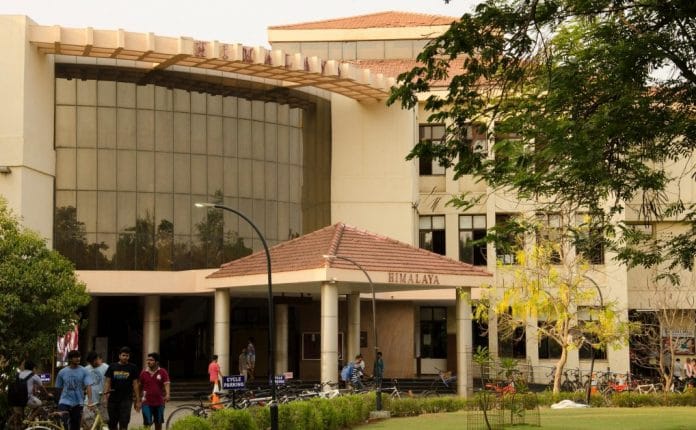Automation isn’t cost-effective or fast enough because of how algorithms are designed or network failures. This is where IIT-Madras team’s algorithms come in.
Bengaluru: Cheaper cab rides. An overall economical online experience. Real-time health results from your wearables beamed straight to your doctor and stored for a diagnosis on your next visit. Cars that talk to each other.
Researchers at IIT-Madras have designed novel algorithms that promise to make automation, that zeitgeist of our times, simpler and cheaper, and thus help industries across the board optimise their operations.
Automation is all around us. Not only are thousands of factories equipped with robotic machines and arms, we interact with layers of computer automation in our daily lives.
Our GPS calculates the intensity of traffic around us and how to navigate it; our phone calls are routed without any operators; and computers onboard spacecraft operate them independently of humans.
In any system, making decisions after processing data is done by a set of algorithms called the control algorithms, which look for patterns in data and figure out what is to be done next.
However, automation at times isn’t cost-effective or fast enough because of the way algorithms are designed or network failures. Executing control algorithms can be very resource- and time- intensive. And as more and more systems come onboard the cloud daily, any network latency issues are bound to slow things down even leave several businesses with unhappy customers.
Here’s where the Cyber-physical Cloud Computing Lab at IIT-Madras comes into the picture.
Also read: Using new AI algorithm, IIT-Bombay to reduce damage caused by natural disasters in India
Cheaper, faster
The algorithms they’ve designed run on a cloud-based server, which can be used by businesses worldwide. The concept isn’t new; it’s what is commonly called Software as a Service (SaaS). But the speed is what is different: The IIT-Madras team’s algorithms run faster, consuming less memory and time, and, thus, costing less.
“Designers of a system ensure a buffer of extra resources is always available for a task,” said Ramkrishna Pasumarthy, an associate professor of electrical engineering at IIT-Madras who designed the algorithms with a former student, Dr Saikrishna P.S., who is currently an assistant professor at IIT-Tirupati.
“This over-allocation almost always tends to be expensive. Our algorithms analyse demands much (more) effectively, allocating just what is needed,” he added.
To test how well their studies work, Pasumarthy’s lab has built a platform prototype that runs these algorithms, and is using it on three different applications. The biggest testbed for this is Internet of Medical Things.
Both tech and data are seeing a growth spurt today. The smartwatches we wear monitor our heart rates and locations all day, menstruation apps track the cycles of millions of women, and fitness apps track our daily lifestyles. These devices generate unprecedented amounts of data; so much, that doctors often struggle to know how to process it or what to do with it.
“When a patient needs to be tested for something, say motion disability, they are called into a lab, made to perform actions for five minutes or so, then judged. This doesn’t always reflect their true problems,” said Pasumarthy.
Instead, a better way to do this in a more natural environment is through wearable devices. A person can simply strap on a device and go about their day. A modem can transmit the data collected daily to a secure server, from which it can be accessed by doctors to run diagnostics.
Also read: Scientists get glimpse of life 3.4 billion years ago. It’s likely the oldest we have yet
This, Pasumarthy believes, will play a big part in extending medical care to remote areas that aren’t equipped with the best of facilities. His collaborators in the project include Dr Viswanath Talasila of Ramaiah Institute of Technology, Bengaluru, an expert in sensing technologies, and Vinay Sridhar, a former student of his.
He is currently testing the algorithms on medical applications through a startup, iMov, he co-founded with Talasila and Sridhar, which was incubated at IIT-Madras Research Park. Patients wear the devices and the data transmitted is processed by the team’s algorithms.
“Through the company we are also developing wearable devices to treat movement disorders,” said Talasila.
Vehicles that talk
The lab also hopes to test a connected vehicle framework. “In the future, cars will be talking to each other and optimising routes they should take,” said Pasumarthy. He doesn’t mean just self-driving cars, but regular vehicular traffic, all connected to a grid, relaying their location and speed data along with information about the health of their components.
To test their algorithms on industrial automation products, the lab has partnered with as-yet-unnamed companies. The problem they aim to tackle is scalability of automation in industrial Internet of Things.
“Brands like Flipkart and Ola were cheaper and faster when new, but couldn’t sustain their model when the demand went up,” said Dr Nirav Bhatt of IIT-Madras, a collaborator of Pasumarthy on the project. “This has to do with the effective optimisation of resources,” Pasumarthy added, saying he hoped to fix such scalability problems for home-grown businesses.
The government today is encouraging a lot of small enterprises through the Ministry of Micro, Small & Medium Enterprises (MSME), and Pasumarthy said he wanted his services to help such startups with customised solutions.
The possibilities are endless, as automation is the way of the future. “Scalability and interoperability are key,” said Saikrishna, a veteran of the automation industry. “Our algorithms aren’t restricted to just one-use case. We hope for them to be used across industries for automation.”






